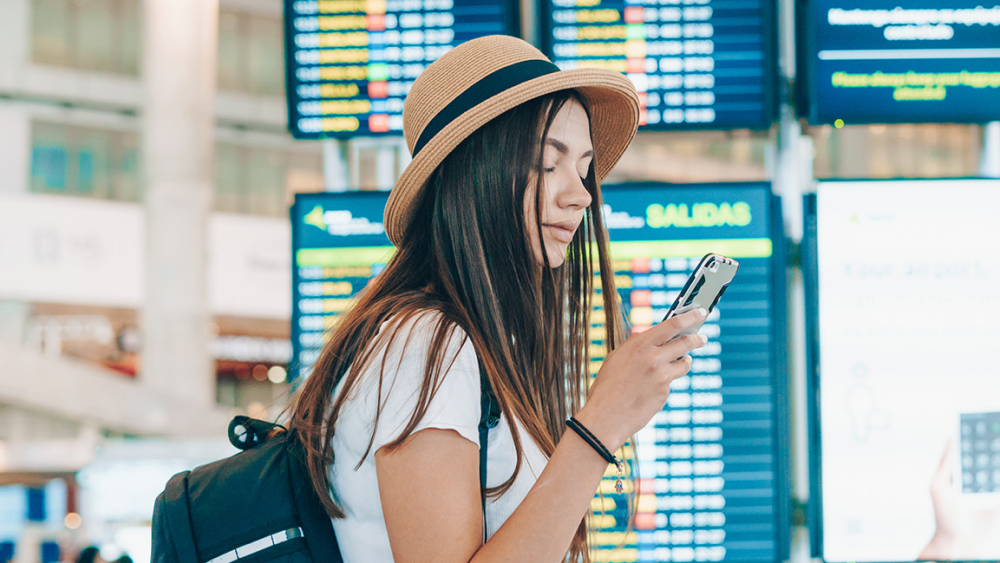Picture this: You’ve just arrived at a bustling airport, exhausted from your journey but excited for your vacation. While waiting for your connecting flight, you pull out your phone to share that first travel selfie or check your hotel reservation. You spot the airport’s free Wi-Fi network and connect without a second thought. What you don’t realize is that you may have just handed cybercriminals the keys to your digital life.
Tourist hotspots—airports, hotels, cafes, and popular destinations have become hunting grounds for hackers who exploit the very convenience that makes these locations attractive to travelers. The combination of rushed tourists, ubiquitous free Wi-Fi, and relaxed security awareness creates the perfect storm for cybercrime.
The Shocking Reality: You’re More Vulnerable Than You Think
The statistics paint an alarming picture of just how dangerous public Wi-Fi can be for travelers:
- 25% of travelers are hacked while using public Wi-Fi abroad
- 40% of people have had their information compromised while using public Wi-Fi networks
- One in four Wi-Fi hotspots are just waiting to be hacked
- 78% of people don’t use VPN protection while connected to public Wi-Fi during travel
These aren’t just numbers—they represent real people whose vacations turned into identity theft nightmares, drained bank accounts, and compromised personal information that can haunt them for years.
Why Tourist Hotspots Are Hacker Paradise
Airport Wi-Fi is known to be a “hacker honeypot” due to typically lax security. Think about it: thousands of tired, distracted travelers pass hrough daily, each carrying devices loaded with personal and financial information. Just one airport network could hold hundreds to thousands of potential targets.
Hotels: Your Safe Haven Isn’t So Safe
Unsecured hotel networks can be accessed by anyone near the hotel, allowing them to monitor traffic to connected devices. Many hotels prioritize convenience over security, offering open networks that make it trivially easy for cybercriminals to intercept your data.
Cafes and Tourist Attractions: Where Convenience Meets Vulnerability
Popular cafes, restaurants, and tourist attractions often offer free Wi-Fi as a customer amenity. However, public Wi-Fi networks are typically unencrypted, meaning data transmitted over these networks can be intercepted by hackers.
The Hacker’s Playbook: How They Turn Your Connection Into Cash
Evil Twin Networks: The Perfect Impersonation
Cybercriminals are now updating an old cybercrime tactic called “evil twin” attacks. Here’s how it works: hackers create fake Wi-Fi networks with names that closely resemble legitimate ones. Instead of connecting to “Airport_WiFi,” you might accidentally connect to “Airport_Wi-Fi” or “Airport_Free_WiFi.” The miniaturization of digital twinning technology has made this kind of cyberattack more appealing to hackers, with the technology to pull it off available for less than $500.
Man-in-the-Middle Attacks: The Digital Eavesdropper
The biggest threat to free Wi-Fi security is the ability for hackers to position themselves between you and the connection point. Instead of your data going directly to its intended destination, it first passes through the hacker’s system, giving them access to everything: emails, passwords, credit card information, and even business credentials.
Packet Sniffing: Reading Your Digital Mail
Hackers use packet sniffing tools to capture and analyze traffic, extracting personal information from unsuspecting users. This sophisticated technique allows cybercriminals to intercept and read data that isn’t properly encrypted, turning your private communications into an open book.
Malware Distribution: The Unwanted Souvenir
Hackers can use an unsecured Wi-Fi connection to distribute malware. Some have even managed to hack connection points themselves, causing pop-up windows to appear offering fake software updates that actually install malicious code on your device.
The Psychology Behind Tourist Vulnerability
Vacation Brain: When Guards Come Down
“When on vacation, people tend to forget about their online security,” said cybersecurity expert Daniel Markuson. The excitement of travel combined with the stress of navigating unfamiliar places creates a perfect storm where normal security awareness takes a backseat to convenience.
The Urgency Factor
“It is typical to scroll through your phone while waiting for a flight or train. However, when on vacation, people tend to forget about their online security. Hackers take advantage of that and use the public Wi-Fi network weaknesses in airports and train stations to get their hands onto sensitive personal or corporate data”.
McAfee Mobile Security: Your Digital Bodyguard for Every Journey
Understanding these threats is the first step, but protection requires the right tools. McAfee Mobile Security, available on both the Google Play Store and iOS App Store for iPhones, provides comprehensive protection designed specifically for the challenges travelers face.
McAfee Secure VPN: Bank-Grade Protection in Your Pocket
McAfee’s automatic VPN proxy ensures secure browsing and hides your IP address for added privacy, while the network scanner and Wi-Fi security verify connections, keeping you safe on public networks.
Key VPN Features:
- Automatic Activation: McAfee unlimited VPN turns on automatically to protect your personal data and credit card info, so you can bank, shop, and browse online privately anywhere you go
- Bank-Grade Encryption: McAfee VPN for Android and iPhone gives you access to bank-grade Wi-Fi encryption so you can browse in confidence
- Global Server Network: Connect to different countries and change your location & IP address
Wi-Fi Security Scanner: Your Network Detective
Receive alerts when connecting to an unsecured Wi-Fi network or hotspot. Wi-Fi scan analyzes networks for security and ensures a safer online connection. This feature acts as your personal network security expert, warning you before you connect to potentially dangerous networks.
Real-Time Threat Protection
Safe Browsing Protection: Block malicious websites automatically so you can browse safely. Safe browsing alerts protect you from phishing and leaking personal info.
Text and Email Scam Detection: Text scam protection filters risky messages and phishing attempts, and blocks harmful sites. Identify risky emails and get scam warnings with email scam protection.
Getting Protected: Download McAfee Mobile Security Today
For Android Users: McAfee Mobile Security is available on the Google Play Store. The app combines antivirus protection, VPN security, and identity monitoring in one comprehensive package.
For iPhone Users: iOS users can download McAfee Security from the App Store, providing the same robust protection optimized for Apple devices.
Beyond VPN: Additional Travel Security Best Practices
While McAfee’s mobile security provides robust protection, combining it with smart travel habits creates an impenetrable defense:
Verify Network Names Always confirm the exact Wi-Fi network name with establishment staff. Hackers create fake Wi-Fi hotspots that have convincing names designed to trick travelers.
Use Mobile Hotspot When Possible “My favorite way to avoid evil twin attacks is to use your phone’s mobile hotspot if possible,” said cybersecurity expert Brian Callahan. This creates a secure, personal network that only you control.
Disable Auto-Connect Set your mobile device to ‘ask’ before it connects to a Wi-Fi network, rather than automatically connecting to an available network. This simple setting prevents your device from automatically connecting to malicious networks.
Keep Software Updated Updates often include security patches that address vulnerabilities and protect against emerging threats. Before traveling, ensure all your devices and security software are current.
The Cost of Complacency vs. The Value of Protection
Consider the true cost of a security breach while traveling:
- Identity theft recovery can take months or years
- Fraudulent charges can drain bank accounts
- Compromised business credentials can affect your career
- Stolen personal photos and information can be used for extortion
Compare this to the minimal cost of McAfee Mobile Security, which provides comprehensive protection for less than the price of a coffee at most airport cafes.
Looking Ahead: The Evolving Threat Landscape
As cyber threats evolve, traditional security measures like VPNs may no longer be sufficient on their own. However, McAfee’s mobile security suite evolves continuously, incorporating the latest threat intelligence and protection technologies to stay ahead of cybercriminals.
The integration of AI-powered threat detection, real-time network analysis, and behavioral monitoring means your protection improves automatically as new threats emerge.
Your Next Steps: Travel Smart, Stay Protected
Don’t let cybercriminals turn your dream vacation into a digital nightmare. Before your next trip:
- Download McAfee Mobile Security from the Google Play Store or iOS App Store
- Enable automatic VPN protection for seamless security
- Configure Wi-Fi scanning to alert you to unsafe networks
- Review your travel security settings to ensure optimal protection
With the right cybersecurity tools, it’s easy to surf the web securely while exploring new destinations. McAfee Mobile Security ensures that your only worry while traveling is choosing which adventure comes next not whether your personal information is safe.
Your journey should be about creating memories, not dealing with the aftermath of cybercrime. With McAfee Mobile Security protecting your digital life, you can focus on what really matters: enjoying every moment of your travels while staying completely secure. Ready to protect your travels? Download McAfee Mobile Security today from the Google Play Store or iOS App Store and travel with confidence, knowing your digital life is secure no matter where your adventures take you.












